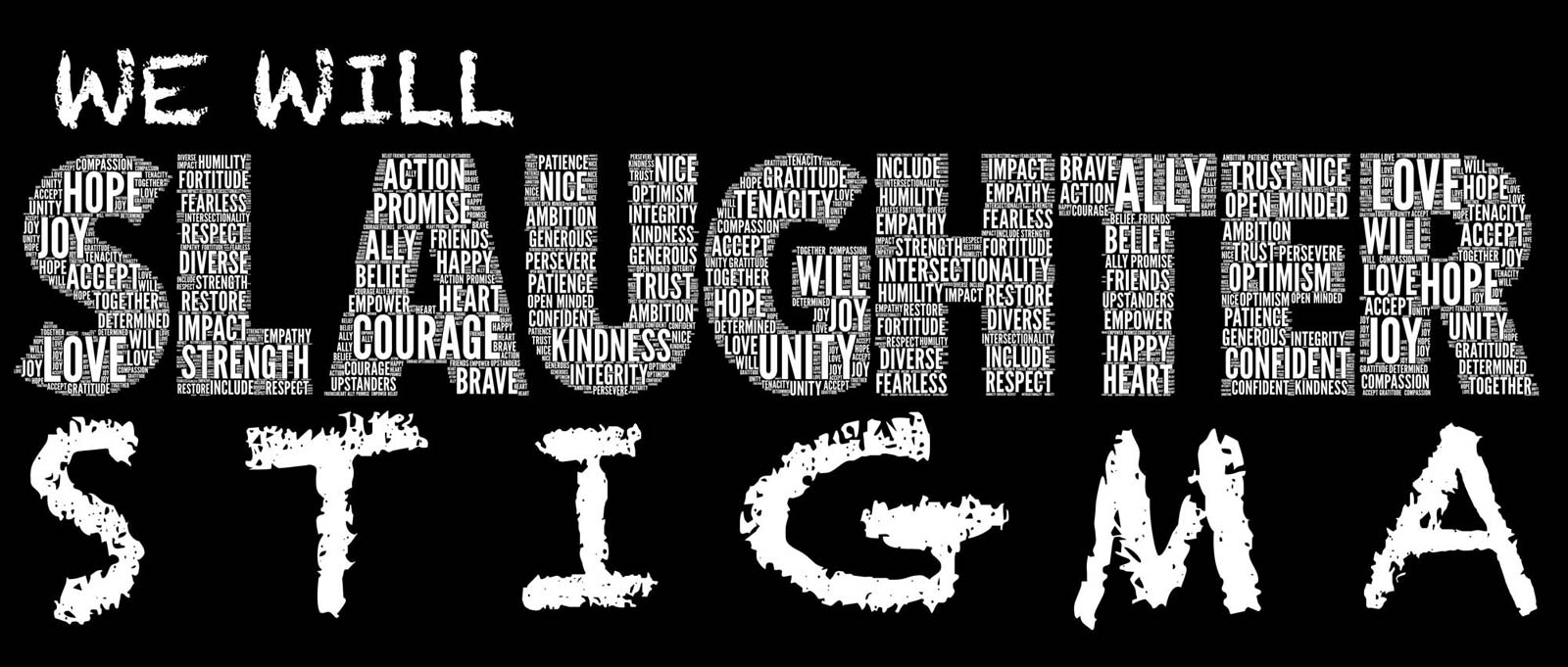Slaughter Stigma
Bender Leadership Academy has partnered with New York Times bestselling novelist, Karin Slaughter, to bring awareness and propose action to end stigma of all people, including people with disabilities.
Our CEO – Joyce Bender
A Word from Author Karin Slaughter

We will create a better world through our words and our actions. We will not stop until stigma no longer creates barriers to opportunity and inclusion.
Stigma teaches youth to devalue people based on characteristics or identities, such as disability, LGBTQ+, gender, and race, creating a link between bullying and stigma. Young people from these marginalized communities experience frequent and more harmful bullying. According to the National Institutes of Health, “this stigma-based bullying undermines youths’ wellbeing and academic achievement, with lifelong stigma-based bullying.” The Slaughter Stigma campaign works to teach young people with disabilities to value themselves, and not internalize stigma, and to stand up for others who are being bullied. Watch our video sharing student stories about bullying.
ENCOURAGE
Encourage the use of truthful and positive portrayals of people with disabilities.
EDUCATE
Educate the public on stigma and stereotypes of people with disabilities with a focus on breaking down myths.
EMPOWER
Empower others to be allies of people with disabilities, by identifying and committing to actions they can take on an individual level to end this stigma.
Stigma of people with disabilities is a deeply rooted cultural bias in the United States and worldwide that affects the lives of people with disabilities in a number of ways and takes on various forms of stereotypes. These stereotypes depict people with disabilities, not for what they can contribute, but as a burden on society that needs to be ‘cured’ or ‘pitied’; an individual who is not capable of independently achieving success. Portrayal of people with disabilities as individuals who are cursed, dependent, or if they do achieve common-place goals, as a superhuman inspiration for “normal” people. From these stereotypes rise behavioral responses in society that continue to create barriers for people with disabilities, including condescension, blaming, and social avoidance that results in a lack of opportunity for employment and increased instances of bullying in children and young adults.
We Will Slaughter Stigma™ by:
- Communicating without using mean or hurtful language
- Choosing love and respect over hate and pity
- Ending stereotypes through education about myths rooted in stigma
- Celebrating individuality and diversity
- Standing up for those who have been bullied or marginalized

Karin Slaughter is one of the world’s most popular and acclaimed storytellers. Published in 120 countries with more than 35 million copies sold across the globe, her nineteen novels include the Grant County and Will Trent books, as well as the Edgar-nominated COP TOWN and the instant NEW YORK TIMES bestselling novels THE LAST WIDOW, PRETTY GIRLS, THE GOOD DAUGHTER, and PIECES OF HER. Slaughter is the founder of the Save the Libraries project—a nonprofit organization established to support libraries and library programming. A native of Georgia, Karin Slaughter lives in Atlanta. Her standalone novels PIECES OF HER, THE GOOD DAUGHTER, and COP TOWN are in development for film and television.
First appearing in the novel Triptych, special agent Will Trent is the main protagonist in a series of books that take place in Atlanta and follows cases with the Special Criminal Apprehension Team for the Georgia Bureau of Investigation (GBI). Will is one of the best agents at the GBI, maintaining an 89% clearance rate for cases assigned to him. He is an excellent puzzle solver, able to take apart and reassemble almost any device with moving parts, a snappy dresser, and is unlikely to be impulsive or spontaneous. He is described as being fair and reasonable but has poor social skills and is a good agent who has a reputation for not getting along well with others. Will is also a person with a disability. He has dyslexia.
Over the years, Will has developed many habits for accommodating his disability in a way that allows him to continue to be a top agent, including using a digital recorder and voice recognition software to generate reports, wearing a wristwatch to tell his left from his right, and applying color-codes to folders to identify cases. As a fictional character, Will Trent has also become a guide for others in fair representation of a person with a disability. Having both flaws and strengths, this character avoids the often-overused tropes found in representation of people with disabilities – characters pitied for their disabilities or possessing superhuman amplification of certain abilities. Instead, Will is in many ways an average person who has found how to best apply his talents and overcome obstacles in his life. Learn more about the Will Trent Series.